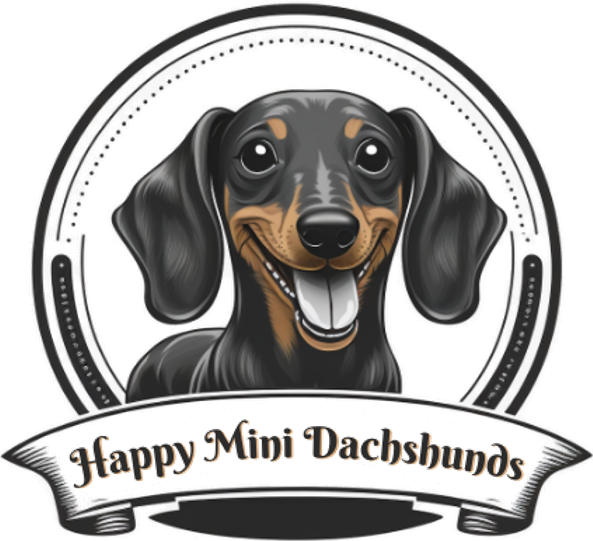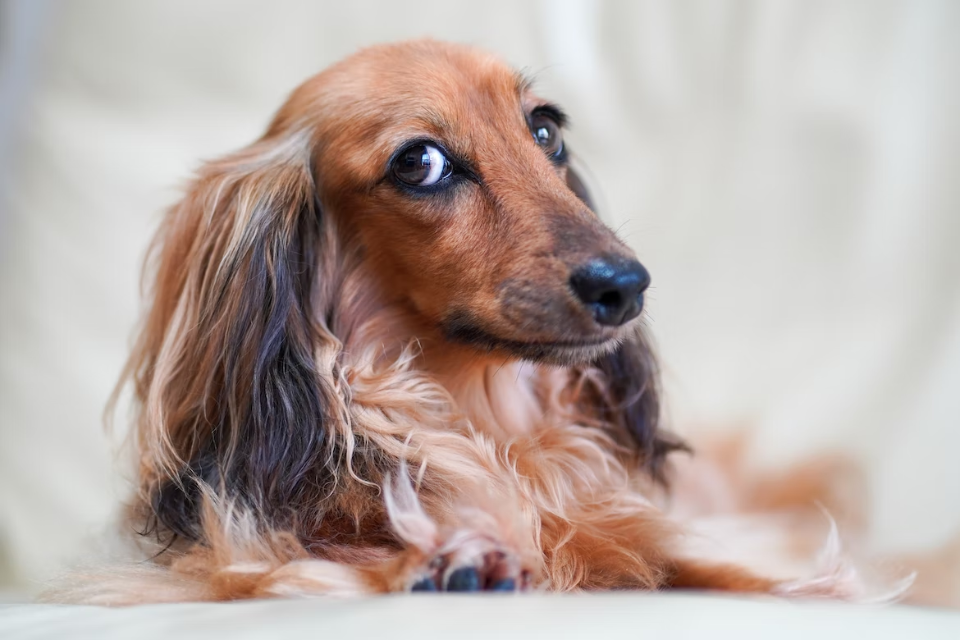Miniature dachshunds are a popular and beloved breed of dog known for their unique appearance and playful personalities. They are small in size, but big in heart and make great companions for families and individuals alike. However, like all dogs, miniature dachshunds require proper care and attention to thrive and live long healthy lives.
In this blog post, we will explore the various aspects of miniature dachshund care, including nutrition and feeding, exercise and activity, grooming and hygiene, health and wellness, training and socialization, and more. We will provide tips and recommendations for each topic, as well as discuss common issues and problems that may arise with this breed.
Whether you are a current miniature dachshund owner or are considering adopting one, this post will serve as a valuable resource for ensuring your pet’s health and happiness. So let’s dive in and learn more about the wonderful world of miniature dachshunds!
Key Takeaways:
- Miniature dachshunds require a balanced diet and proper portion control to maintain a healthy weight.
- Exercise is important for miniature dachshunds to prevent obesity and keep their energy levels in check.
- Proper grooming and hygiene habits can help prevent skin irritations and dental issues. Regular vet check-ups and socialization training are also important for the overall well-being of your miniature dachshund.
Nutrition and feeding
Proper nutrition is essential for the health and well-being of miniature dachshunds. These dogs have a tendency to become overweight, which can lead to health issues such as joint problems and diabetes. It is important to feed them a balanced diet that meets their nutritional needs and to avoid overfeeding them.
Recommended diet for miniature dachshunds
Miniature dachshunds require a diet that is high in protein, moderate in fat, and low in carbohydrates. It is important to choose high-quality dog food that is appropriate for their age, size, and activity level. Look for dog foods that contain meat as the first ingredient, as well as healthy fats such as fish oil or chicken fat. Avoid dog foods that contain fillers, by-products, or artificial preservatives.
Frequency of feeding and portion sizes
Miniature dachshunds should be fed small, frequent meals throughout the day to prevent overeating and obesity. Typically, two to three meals per day are recommended, with portion sizes based on the dog’s weight and activity level. It is important not to overfeed your dog or give them table scraps, which can lead to weight gain and digestive problems.
Avoiding foods that are toxic to dogs
Some foods are toxic to dogs and should be avoided at all costs. These include chocolate, caffeine, alcohol, grapes and raisins, onions, garlic, and avocados. Additionally, some human foods may be too high in fat, salt, or sugar for dogs and can lead to health problems.
Tips for preventing obesity in miniature dachshunds
Obesity is a common problem in miniature dachshunds, which can lead to serious health issues such as diabetes and joint problems. To prevent obesity, it is important to provide your dog with regular exercise and limit their intake of high-calorie treats. You can also feed your dog low-calorie vegetables such as carrots or green beans as a healthy snack.
Exercise and activity
Miniature dachshunds are energetic and active dogs that require regular exercise to maintain their physical and mental health. Lack of exercise can lead to weight gain, behavioral issues, and other health problems. Here are some tips for providing your miniature dachshund with the exercise and activity they need.
Regular walks
Regular walks are important for miniature dachshunds to maintain their physical health and provide mental stimulation. Aim for at least two walks per day, each lasting around 20-30 minutes. Make sure to keep your dog on a leash to prevent them from chasing after small animals or getting into dangerous situations.
Interactive Playtime
Miniature dachshunds love to play, and interactive playtime can provide them with the exercise and mental stimulation they need. Play fetch with a ball or toy, or engage your dog in a game of tug-of-war. Be sure to supervise your dog during playtime to prevent them from getting injured or ingesting foreign objects.
Mental Stimulation
Miniature dachshunds are intelligent dogs that require mental stimulation to prevent boredom and destructive behavior. Consider providing your dog with puzzle toys or treat-dispensing toys to keep them mentally engaged. You can also teach your dog new tricks or obedience commands to challenge their minds.
Swimming
Swimming is a low-impact exercise that is great for miniature dachshunds, as it puts less stress on their joints than other forms of exercise. If you have access to a pool or lake, consider taking your dog for a swim. Always supervise your dog while they are swimming and make sure they are comfortable in the water before allowing them to swim.
Grooming and hygiene
Grooming is an essential part of taking care of your miniature dachshund’s health and well-being. This breed has a unique coat that needs special attention. Proper grooming also helps prevent common health problems such as skin irritations and infections.
- Brushing: Regular brushing helps keep your dachshund’s coat shiny and healthy. A slicker brush is the best tool for removing loose hair and dirt from their fur. Brushing should be done at least once a week.
- Bathing: Miniature dachshunds do not require frequent bathing as their coat naturally repels dirt and water. Bathing them once every three months is enough, but you can bathe them more frequently if they get especially dirty or smelly.
- Dental Care: Dental care is crucial for your miniature dachshund’s overall health. Brush their teeth daily with a dog toothbrush and toothpaste to prevent tartar buildup and tooth decay. Regular dental check-ups with your vet are also recommended.
- Nail Trimming: Keeping your dachshund’s nails trimmed is essential to prevent overgrowth, which can cause discomfort and even lead to paw deformities. Trim their nails every 4-6 weeks or as needed.
- Ear Cleaning: Miniature dachshunds have long, floppy ears that are prone to ear infections. Clean their ears regularly with a vet-recommended ear cleaner to prevent infections.
In summary, regular grooming is essential to maintaining your miniature dachshund’s health and appearance. By following these simple grooming tips, you can help your dachshund stay clean, healthy, and happy.
Health and wellness
As with all dog breeds, it is essential to keep your miniature dachshund healthy and happy. By providing a balanced diet, regular exercise, and proper grooming, you can help prevent common health problems and ensure your pup lives a long and healthy life.
Common health issues
While miniature dachshunds are generally healthy, there are some health issues you should be aware of, including:
- Back problems: Due to their long back and short legs, miniature dachshunds are prone to back problems, such as intervertebral disc disease (IVDD).
- Dental problems: Small dogs are susceptible to dental problems, including periodontal disease and tooth decay.
- Obesity: Miniature dachshunds can easily become overweight or obese, which can lead to joint problems and other health issues.
Preventative care
To keep your miniature dachshund healthy, it’s important to take preventative measures, such as:
- Regular veterinary check-ups: Annual check-ups with your veterinarian can help catch any health problems early and prevent them from worsening.
- Vaccinations: Vaccinations protect your pup from common diseases and illnesses.
- Dental care: Brushing your dog’s teeth regularly and providing dental chews can help prevent dental problems.
- Weight management: Feeding your dog a balanced diet and ensuring they get enough exercise can help prevent obesity and associated health problems.
Signs of illness
It’s important to be aware of the signs of illness in your miniature dachshund. Some common signs include:
- Decreased appetite or thirst
- Lethargy
- Vomiting or diarrhea
- Coughing or sneezing
- Difficulty walking or standing
If you notice any of these signs, it’s important to contact your veterinarian right away.
Emergency care
In the event of an emergency, it’s important to know what to do. Keep the phone number and address of your nearest veterinary hospital on hand, and be prepared to transport your dog quickly if needed. Some common emergency situations for miniature dachshunds include:
- Choking or difficulty breathing
- Seizures
- Trauma or injury
- Heat stroke
By taking good care of your miniature dachshund’s health and wellness, you can help ensure they live a long and happy life by your side.
Training and socialization
Training and socialization are essential for a dog’s development and wellbeing. Dogs are social animals, and without proper socialization and training, they can develop behavioral problems such as aggression, separation anxiety, and destructive behavior. Therefore, it is important to start socializing and training your dog from a young age.
Training can involve teaching your dog basic obedience commands, such as sit, stay, come, and heel. It can also involve more advanced training, such as agility training, scent training, or even training for therapy work. A well-trained dog is easier to handle, and training can help strengthen the bond between you and your dog.
Socialization involves exposing your dog to different environments, people, and other animals. This can help your dog become more comfortable and confident in new situations, reducing the risk of anxiety and fear-based behavior. Socialization can include trips to the park, visits to friends’ homes, and taking your dog to obedience classes or dog-friendly events.
It’s important to remember that training and socialization are ongoing processes, and they require time and effort. Consistency and positive reinforcement are key to successful training and socialization. Rewards such as treats, praise, and playtime can motivate your dog to learn and reinforce good behavior.
It’s also important to note that not all dogs are the same, and different breeds may have different training needs. Some breeds may require more socialization than others, while some may need specialized training for specific tasks. Therefore, it’s important to do research on your dog’s breed and consult with a professional trainer to determine the best training and socialization methods for your dog.
In summary, training and socialization are crucial components of a dog’s wellbeing. It can help prevent behavioral issues and strengthen the bond between you and your dog. With consistency and positive reinforcement, you can help your dog become a well-behaved, happy, and confident companion.
Conclusion
Taking care of a dog requires dedication, patience, and a willingness to learn. It’s important to remember that each dog is unique and may require different levels of attention and care. By following the guidelines in this article, you can provide your dog with the best possible care to ensure they live a happy and healthy life.
Remember to prioritize nutrition and feeding, exercise and activity, grooming and hygiene, health and wellness, and training and socialization. With proper care, your dog can become a beloved companion that brings joy and happiness to your life.
It’s also essential to establish a relationship with a veterinarian and schedule regular check-ups to monitor your dog’s health and address any concerns. By providing your dog with love, attention, and proper care, you can build a strong bond and create lasting memories that will be cherished for years to come.

